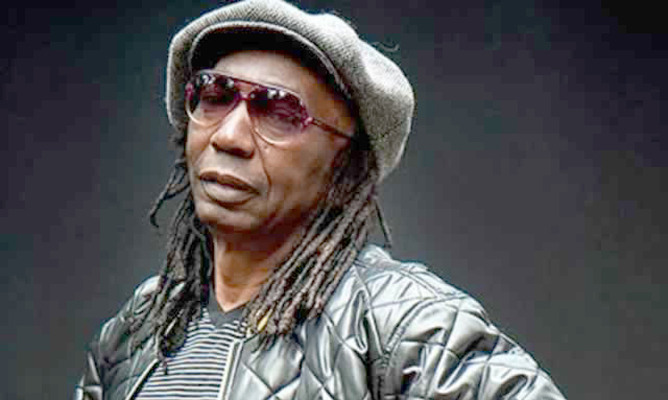
DURING the liberation struggle, the oppressed black majority used different ways to fight oppression — some were at the battle front while others were war collaborators (chimbwidos/mjibhas). Musicians envigorated the masses and fighters and stoked the war spirit and freedom through song. Musicians like Thomas Mapfumo, Oliver Mtukudzi, Safirio Madzikatire and Chinx Chingaira, among others, come to mind.
free bars with Sindiso Dube
In 1979, Mapfumo, popularly known as the Lion of Zimbabwe, was jailed by the Rhodesian government for his songs that promoted the liberation struggle. In post-independence Zimbabwe, Mapfumo became the darling of the government and he churned out songs that promoted socio-economic emancipation of Zimbabweans. He, however, later became an enemy of the same government after he released the song Corruption in 1988. He became critical of President Robert Mugabe’s administration, which saw his music being “banned” on national radio stations. Mapfumo could not stand it anymore and went into self-imposed exile in the United States.
Hip-hop, a genre popularised in America, has played an important role in the African-American society and culture where its roots are traced in the struggles of discrimination in America. The discriminated African-American society used free speech to produce music that expressed their feelings and aired out their grievances, although their lives and lyrics sometimes revolve around violence.
Present day rappers like Kendrick Lamar and J Cole are still championing the emancipation of blacks in America through music. One Tod Brandon once described the genre as a child of slavery and a cousin of free speech as it has enabled the poor to speak out creatively.
The genre has grown into a global culture, stretching as far as Zimbabwe, with its origins tracing back to the days of the group Peace of Ebony which was made up of Herbert Schwamborn (Metaphysics), the late Chiwoniso Maraire, Tony Chihota, Tendai Viki and Keith Farquharson, who belted out hits like From the Native Tounge, Pretend It Never Happened and Vadzimu, which made them the first local hip-hop band to get international recognition.
Zimbabwean hip-hop has seen a sundry turn of events from conscious rappers like Synik, Culprit, Upmost, Outspoken, mUnetsi, Rizzla, Orthodox Six and Begotten Son singing about the ailing economy, corruption, diseases, hunger and unemployment in our societies to those who are considered the new kids on the block like MMT, Cal_Vin, Guluva Se7en, Takura, Sinbad 90, Marques and Schingy who sing about booze, girls and flashy lives.
- Chamisa under fire over US$120K donation
- Mavhunga puts DeMbare into Chibuku quarterfinals
- Pension funds bet on Cabora Bassa oilfields
- Councils defy govt fire tender directive
Keep Reading
With the recent political turn of events in the country which has seen months of civil unrest shown through demonstrations and protests, one would be drawn to ask, where have those gallant urban musicians gone? Isn’t it the best time for them to sing about the day-to-day happenings on the streets?
Hip-hop is built upon the basis of freedom of expression and speaking out the grievances of the suffering masses. It’s sad how in these times of social unrest, hyper corruption, bad governance, high rate of unemployment, HIV and Aids, hip-hop artists sing about girls and booze when the country needs a voice to inspire today’s generation. Underground rappers such as Faceless, Jungle Bango from Mavingo, Sphynx Briton and BA7, among others, who are well-known for being critical of Mugabe, have in the past cried foul because their music was not played on national radio stations. Where are these brothers who used to be active on social media? Are they in such deep slumber or have they given in to Zanu PF intimidation?
History has it that Zanu PF is sensitive when it comes to dissenting voices, be it in poetry, music or any form of art. This is evident in the cases of Mapfumo and Pastor Evan Mawarire, who fled to the US, fearing for their lives. Top rapper and businessman Jay Z real name Sean Carter, once said; “We change people through conversation, not through censorship.”
The interdiction of such artistry is a draconian spasm on values on which democratic principles are built. Just like the media, protest music has a stubborn fact that has the steadfast predisposition of stirring emotions and piercing the hearts of the powers that be. Fear and intimidation has dealt a major blow on the arts sector. Some artists can’t express themselves due to fear and intimidation, while others have resorted to the “politics of the stomach”, singing Mugabe’s praise songs.
I strongly believe artists should develop a thick skin and stand up for what they believe, just like what protesters are doing. Where are you Metaphysics, Synik, Culprit, Upmost, Outspoken, mUnetsi, Orthodox Six, Rizzla, Faceless, Jungle Bango and Temple (formerly Blackbird)? Rise up and inspire the masses.
l Sindiso Dube is three-time Zim hip-hop awards best journalist nominee and winner. For feedback; Twitter @Sindora_zw or e-mail: [email protected]












